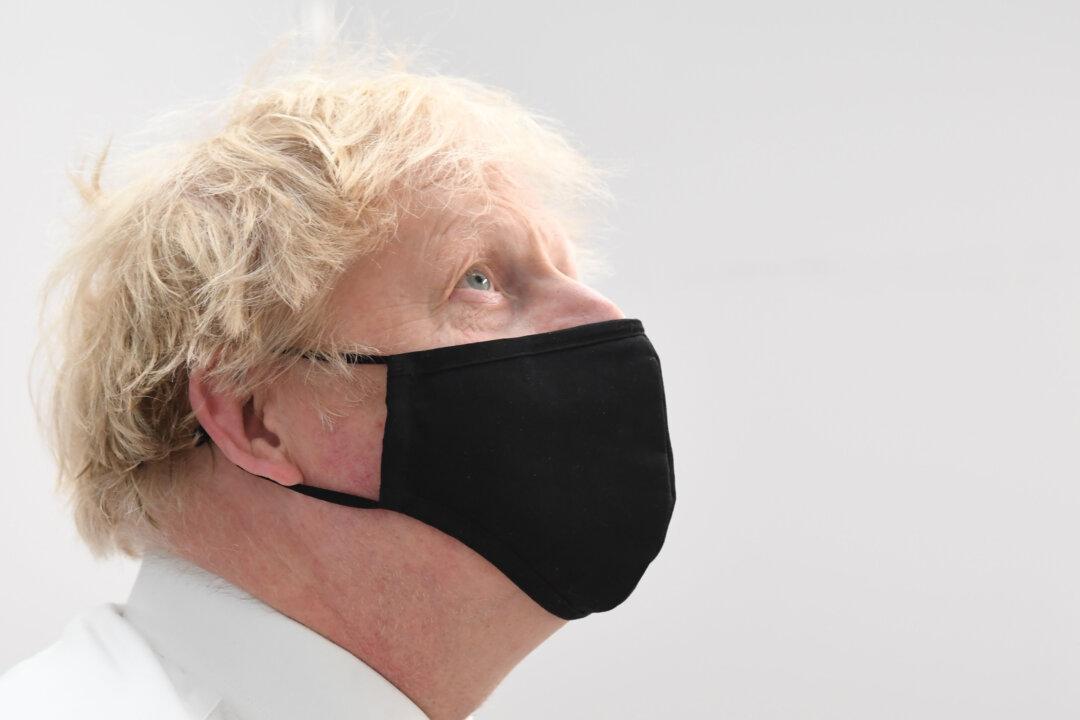Behavioural psychology was used on former British Prime Minister Boris Johnson to nudge him into wearing a mask, according to the head of the government Behavioural Insights Team (BI).
Professor David Halpern, BI chief executive and member of the government’s Scientific Advisory Group for Emergencies (SAGE), described to The Telegraph how he had helped nudge the former prime minister by using peer pressure.





